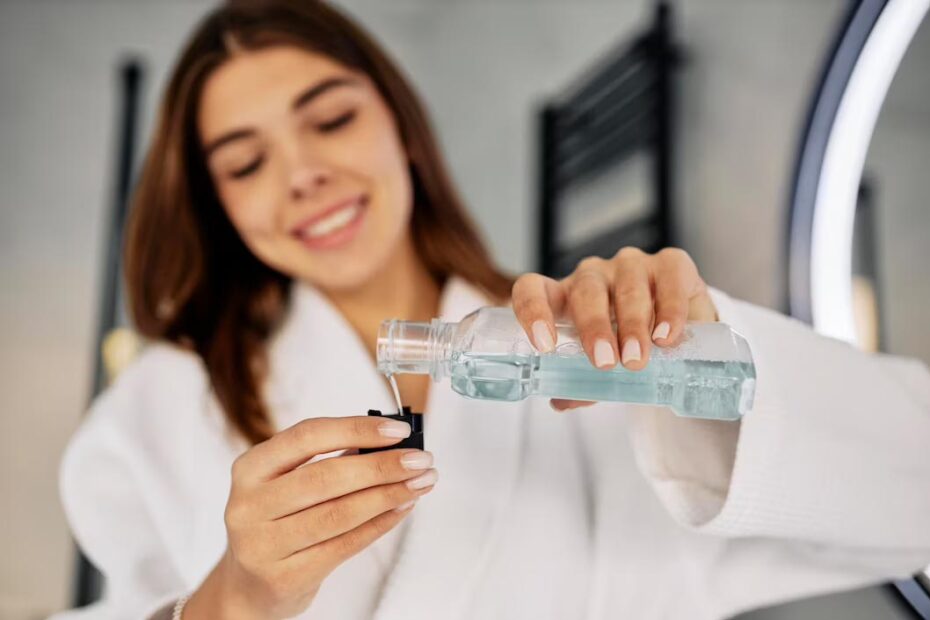From ancient times to the modern-day United States, mouthwash has been a constant companion to those seeking to improve their oral hygiene and freshen their breath. The ancient Greeks and Romans were known to use mouthwash to freshen their breath and improve oral hygiene. They would mix wine with herbs and spices like cinnamon, myrrh, and mint to create a fragrant rinse. In the United States, mouthwash became more popular in the early 20th century.
Originally marketed as a surgical antiseptic, Listerine was repurposed as a mouthwash in the 1910s. Today, a wide variety of mouthwashes are available, including those designed to fight cavities, freshen breath, and even whiten teeth. However, some studies have suggested that certain types of mouthwash containing alcohol may increase the risk of oral cancer, whereas other studies have found no such link. So, should you use mouthwash every day? Let's find out.
How To Use Mouthwash?
Dental professionals unanimously agree that mouthwash is not a substitute for brushing and flossing. Instead, it should be a supplementary tool to help improve oral hygiene. You should not rely solely on mouthwash to keep your teeth and gums healthy.
One key thing dentists recommend is choosing the right type of mouthwash for your needs. For example, a mouthwash containing essential oils like peppermint or spearmint may be a good choice to freshen your breath. On the other hand, a fluoride mouthwash may be more effective if you want to fight cavities.
In terms of how to use mouthwash, dentists generally recommend the following steps:
- Brush and floss your teeth before using mouthwash.
- Measure out the recommended amount of mouthwash according to the instructions on the bottle.
- Swish the mouthwash around in your mouth for the time (usually 30 seconds to 1 minute) mentioned on the label.
- Spit the mouthwash out into the sink
- Avoid drinking or eating for 30-60 minutes after using mouthwash.
Why Should You Use a Mouthwash?
Using mouthwash is a simple and effective way to improve halitosis (i.e., bad breath), your oral hygiene, and freshen your breath. Consider adding mouthwash to your oral health care routine for several reasons.
- Fighting halitosis: One of the most common reasons people use mouthwash is to fight bad breath. Mouthwash effectively eliminates the bacteria that cause bad breath, leaving your mouth feeling clean and fresh.
- Reducing plaque: Mouthwash may also help reduce plaque on your gums and teeth, preventing cavities and gum disease.
- Strengthening teeth enamel: Certain types of mouthwash contain fluoride, which may help strengthen your tooth enamel and prevent cavities.
- Soothing mouth irritations: Some mouthwashes contain aloe vera, chamomile, and similar ingredients that can soothe and heal irritations like canker sores.
- Whitening teeth: Some mouthwashes may help whiten teeth by removing surface stains.
- Freshening breath after meals: Mouthwash can be an easy way to freshen your breath after meals, especially if you're on the go and don't have time to brush your teeth.
- Controlling gingivitis: Some types of mouthwash are specifically formulated to help prevent gingivitis, a gum disease. These mouthwashes can help lower inflammation and kill the bacteria that cause gum disease.
- Helping with dry mouth: If you suffer from dry mouth, using a mouthwash that contains ingredients like xylitol or sodium fluoride can help increase saliva production and reduce the symptoms of dry mouth.
How Often Should You Use Mouthwash?
The question of how often you should use mouthwash a day is asked commonly. Regarding frequency, most dentists recommend using mouthwash once or twice daily when following your oral hygiene routine. It's best to use it after brushing and flossing, as it ensures sufficient rinsing and cleaning to get rid of remaining bacteria or food particles. However, remember that not all mouthwashes are created equal. Some contain alcohol, which can be harsh on the mouth and cause dryness or irritation. Others may have high fluoride levels, which can be harmful, especially if you are allergic to fluoride.Talk to your dentist if you need help determining which mouthwash suits you or how often you should use it. They can provide personalized recommendations based on your needs and help you develop a comprehensive oral hygiene routine to maintain your dental and gingival health.
Is It Safe To Use Mouthwash Every Day?
The question has two aspects—safety and necessity. So, is using mouthwash daily safe? Mostly, yes. However, a lot depends on the ingredients too. For example, mouthwashes with alcohol and sodium lauryl sulfate are known to have side effects. Alternatively, chlorhexidine, cetylpyridinium chloride (CPC), fluoride, hydrogen peroxide, essential oils such as peppermint and tea tree oil, and xylitol are generally safe ingredients found in mouthwashes. However, mouthwash is not an absolute necessity for everyone. It only offers additional oral health care benefits that help you stay on top of potential dental issues before they become a big problem.
Conclusion
Whether for therapeutic or cosmetic reasons, appropriate use of mouthwash alongside regular brushing and flossing is a way to prevent common dental problems like plaque formation, tooth decay, and gum disease and maintain oral health.
What's your take on mouth rinses? Share comments below.


